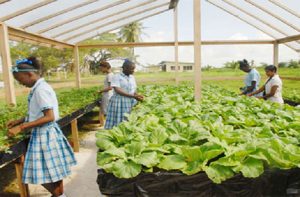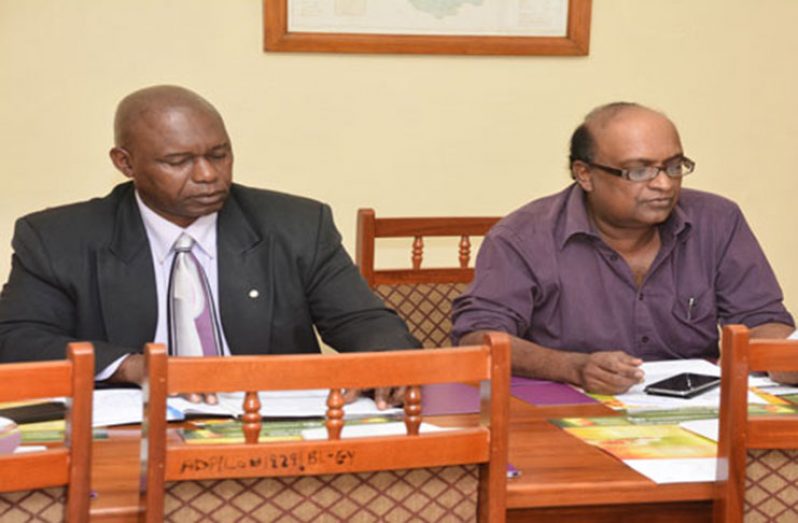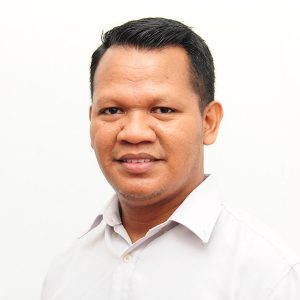ENSURING food security in a changing climatic environment has been the major thrust of the National Agricultural Extension and Research Institute (NAREI).At the same time, the institute has developed and promoted systems to adapt to, as well as mitigate against, climate change, the body’s head Dr Oudho Homenauth told the Guyana Chronicle Monday.

With the theme for agriculture month this year being “Exploring new frontiers in pursuit of climatic resilience”, Dr Homenauth said NAREI has not only adopted several measures of dealing with the issue at hand, but is also promoting new methods of combatting climate change.
“We are fairly well prepared,” he said. “Adapting to climate change has been a major thrust of our activities for the past few years. Thus, we will continue in the foreseeable future.”
One of the interventions that have been made nationally is the establishment of a mangrove management cum restoration programme, which has been able to reduce overtopping and prevent salt water intrusion on farmlands.
Among others are encouraging farmers to switch things up a bit by planting on raised beds during the rainy season, and the development and promotion of shade-house cultivation combined with efficient water management systems.
NEW VENTURES
In terms of new ventures, he listed as being among them the introduction of weather-compatible varieties of cassava for cultivation during the dry season, and the use of both artificial and natural mulches in the farming process.
“The development of germ plasm banks at Kairuni, Ebini, Hosororo and St Ignatius to ensure that planting materials are not lost,” he said, is another intervention piloted by NAREI in the cultivation of crops nationwide.
A germ plasm bank is a collection of live plant matter, in the form of seeds and spores. Its general mission is to locate, collect and conserve plants considered to be of priority importance to our society.
Dr Homenauth said, too, that NAREI has been ensuring the development and promotion of solar drying technology to extend shelf life, while hydroponics for home use is also another farming method being pushed by the agency.
“Farmers are utilising shaded cultivation as well as micro irrigation systems,” he noted as other methods employed by farmers.
Over the years, flooding and dry weather conditions have effectively dampened farming practices across the farming belt. “The farming community is well aware of the effects of climate change after the floods experienced, as well from the effects of El Nino,” Dr Homenauth said, adding:
“There needs to be more emphasis placed on drainage and irrigation as well as water harvesting.”
He said that a major constraint for many farmers is the acquisition costs for materials to be used.
According to Dr Homenauth, water harvesting, marketing, value addition, packaging and labelling as well as more emphasis placed on efficient extension services as the key areas which are being examined to cater for the future of the agriculture sector, a key driver of the economy.












